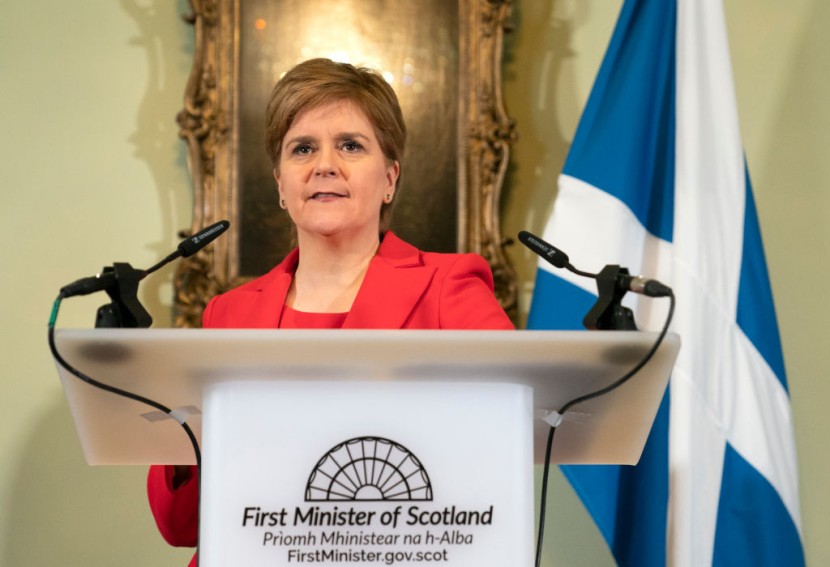
Scotland's first minister, Nicola Sturgeon, announced her resignation after serving eight years, citing a series of political setbacks and the "brutality" of public life.
Sturgeon, the Scottish National Party leader, said that she became aware in her head and heart that it was the right time to step down from her position. However, she denied rumors that her decision was influenced by recent mounting pressure, including discussions about gender reforms, trans prisoners, and independence strategies.
Nicola Sturgeon Resigns
The outgoing minister acknowledged that there had been shaky grounds during her tenure but noted that her decision to resign came from a "deeper and longer-term assessment." Sturgeon said that when she first got the job, she had to instinctively know when it was the right time to give way for someone else to take over.
The official added that she had been facing conflicting emotions since the beginning of this year. According to BBC, Sturgeon said that she would get up in the morning and try to convince herself that she still had what it takes to keep going.
However, the minister noted that she had two questions that suggested; otherwise, one was whether it was right for her to continue, and the second, if it was right for the country, her party, and the cause of independence.
She noted that the answer she arrived at for both questions was no. Sturgeon said that the nation was at a crucial moment with the "blocking of a referendum as the accepted, constitutional route to independence" is a democratic outrage, she added.
Sturgeon argued that support for independence needs to be solidified to grow further. She said that to achieve this, the country needs to reach across the divide in Scottish politics.
The figurehead of the Scottish independence movement reassured that short-term pressures did not influence her decision as she recently experienced increasing tensions with the United Kingdom government in London.
Scottish Independence
The divide was mainly due to the topic of Scottish independence as well as Westminster's decision to prevent a law that sought to allow trans people in Scotland to change their legal gender, according to CNN quickly.
The reasoning she gave for her decision was that she could no longer give her full energy to the job, saying that she felt like she was wrestling with it. Sturgeon added that it has become more difficult for her to maintain a private life. She struggled to meet friends for a coffee or go for a walk just by herself.
The outgoing minister said her successor would have to be someone who would not be subject to the same polarized opinions. Alex Salmond, Sturgeon's predecessor, hailed her as a first-rate political communicator.
On the other hand, former United States President Donald Trump took a jab at Sturgeon following her resignation. The Republican businessman said she was a "failed woke extremist" who symbolized everything wrong with identity politics. Trump specifically cited Sturgeon's support for transgender rights, said the Independent.
Related Article : China's Take on COVID-19 Origin Investigations








